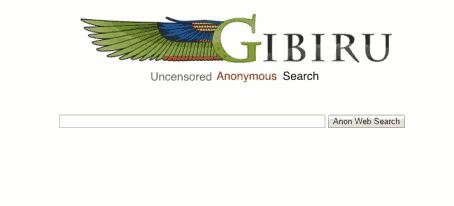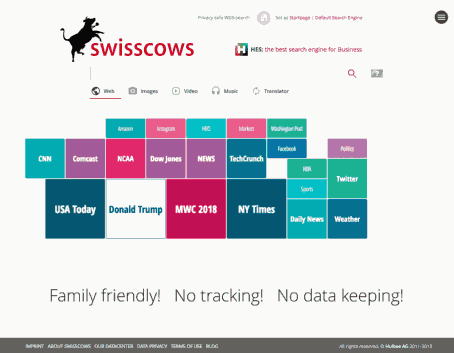Hacking is a common occurrence nowadays. One of the few leaks that hackers use is the information you are constantly browsing. Unfortunately for Google, there is little measure being taken to secure your privacy which searching. Private search engines have seen huge growth over the past few years. Until recently, it was just hard to imagine that anyone could compete with Google in the search realm. However, there are now many smaller players in the search game that are growing rapidly. Google’s market share has declined from 78.7 percent in February 2017 to slightly below 70 percent in February 2018.
There is an inherent risk in sharing your information with third-parties while browsing the internet. That’s why private search engines are beneficial to users. There is very little risk that your searches will be leaked to anyone, because most private search engines don’t track any information that can link you to your search terms. Beyond that, by searching in private, you aren’t creating filter bubbles that isolate you from any results that may conflict with your beliefs.
It’s better to be safe than sorry when it comes to protecting your information from the websites you visit and the search engines you use. With sites like Facebook and Google drastically improving their tracking capabilities, your data is becoming more spread out across the web.
Your privacy really matters, and these search engines can help you stay private online:
Search Encrypt
This private search engine uses local encryption to secure your searches. It combines AES-256 encryption with Secure Sockets Layer encryption. Search Encrypt then retrieves your search results from its network of search partners. After you’re done searching, your search terms expire so they are private even if someone else has access to your computer.
Search Encrypt recently added more new features, including privacy-friendly videos, news and maps search. It’s videos search lets you watch videos directly on the search engine with additional privacy protection, and without pre-roll ads. Search Encrypt forces an advanced SSL encryption utilizing perfect forward security to keep you protected while searching and also encrypts your search term locally before being sent to their servers.

StartPage
If you prefer Google’s result without the tracking, StartPage is the best option for you. Ixquick, an independent search engine that uses its own results, developed StartPage to include results from Google. Its features include a proxy service, URL generator, and HTTPS support. The URL generator is a unique feature that eliminates the need for cookies. It remembers your settings in a privacy friendly way.

DuckDuckGo
The CEO of DuckDuckGo, Gabriel Weinberg, once said, “if the FBI comes to us, we have nothing to tie back to you.” It’s searches are sourced mostly from Yahoo. One prominent feature of DuckDuckGo is what it calls “bangs”. Users can directly search other sites, like Amazon, Wikipedia, Yelp or Youtube, by starting their query with an exclamation mark!
DuckDuckGo recently added a new extension to their product line. It goes beyond keeping your searches private, and grades websites you visit on their security and privacy.

Related Article: How to stop Google from tracking your location
Gibiru
This search engine sources its search results from a modified Google algorithm. It provides reliable search results without all the tracking that Google does today.
Gibiru positions itself as being “ faster than the NSA Search Engines since it does not install all sorts of personalization and tracking cookies on your system.” Gibiru is outspoken against Google’s ability to manipulate, or censor, your search results.

Swisscows
This was developed by Hulbee AG, which is a tech company based in Switzerland. This search engine does not build tracking profiles or use unique identifiers for its users. Swisscows uses artificial intelligence and machine learning to evaluate the context of a user’s search. As a result, Swisscows, offers results that learn to answer your questions. – A cool search tool!

Yippy
Yippy has an additional feature that automatically categorizes query results. For example, a search for “dogs” displays the top results, but also has categories for Training, Photos, Dog Breeds, Rescue, etc. It doesn’t follow search users around the web with ads. Yippy also has a search product that competes with Google’s Search Appliance.

Discrete Search
Discrete Search is a metasearch engine that doesn’t track any identifiable information. It’s a good choice for anyone looking for quick results in a clean and user-friendly form. It uses end-to-end encryption to keep your searches as private as possible.

Every time you use Google, your search data is recorded. It captures your IP address and uses tracking cookies to make a record of your search terms, the time of your visit, and the links you choose – then it stores that information in a giant database. Tracking your searches can erode your privacy and lead to censorship. In addition, those searches reveal a shocking amount of personal information about you, such as your interests, family circumstances, political leanings, medical conditions, and more. This information is modern-day gold for marketers, government officials, black-hat hackers and criminals – all of whom would love to get their hands on your private search data. Above are seven secure search engine alternatives to Google.
Discover more from Dignited
Subscribe to get the latest posts sent to your email.












